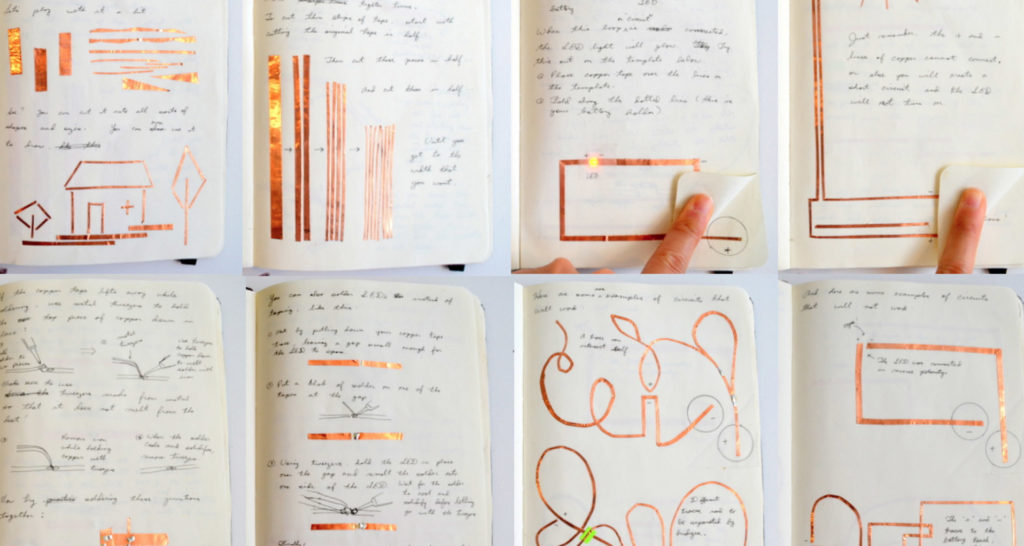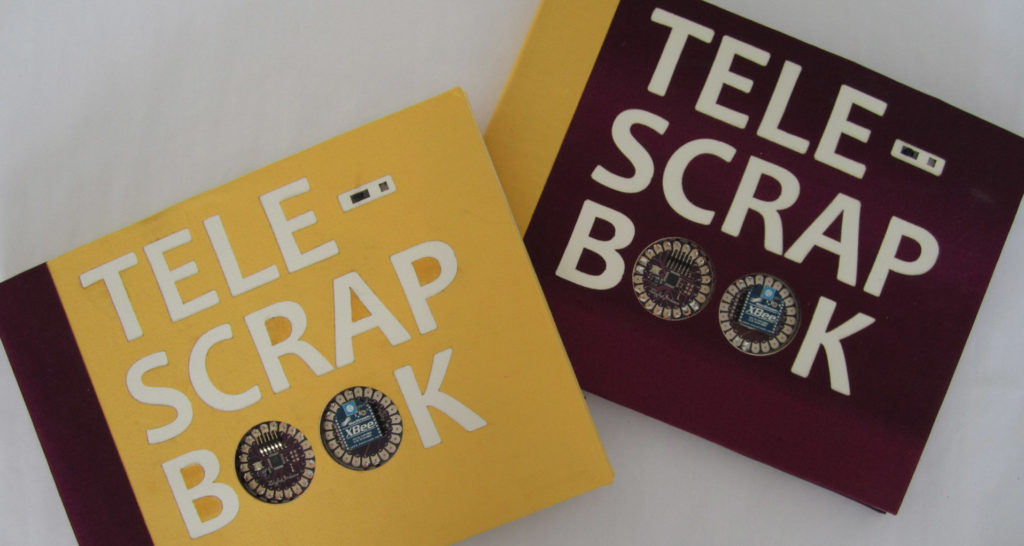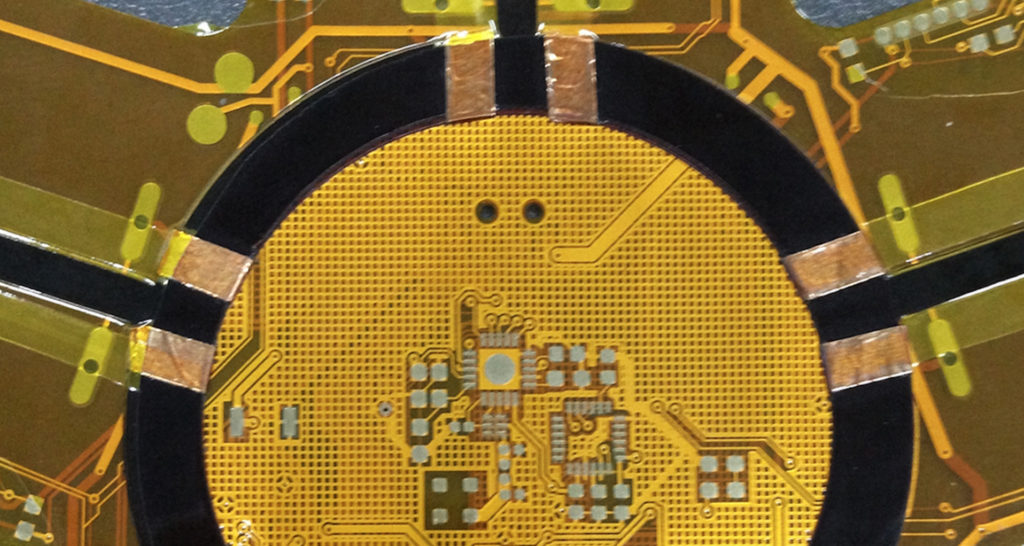Circuit Stickers

Circuit Stickers
Circuit Stickers are peel-and-stick modules that feel like stickers but function as circuit boards. By bundling common electronic circuits–such as LED lights and sensors–into a friendly sticker form factor, they are designed to make circuit-building as simple and accessible as decorating with stickers.
Circuit stickers are composed of flexible printed circuit boards with conductive adhesive on the bottom. Their thin, lightweight and flexible nature also make them convenient for integrating into spaces and surfaces that traditional rigid PCBs cannot fit into.
This project began as a core component of my PhD research and has since spun out into the company Chibitronics.
Collaborators:
Natalie Freed
Andrew “bunnie” Huang
Sean Cross
David Cole
Jennifer Dick
2013
Collections:
MoMA
Research Publications:
Chibitronics in the Wild: Engaging New Communities in Creating Technology with Paper Electronics [PDF]
Qi,J., Buechley, L., Huang, A., Ng,P., Cross, S. and Paradiso, J. A. In Proceedings of the 2018 CHI Conference on Human Factors in Computing Systems (CHI ’18). ACM, New York, NY, USA, Paper 252, 11 pages. 2018
Code Collage: Tangible Programming On Paper with Circuit Stickers [PDF]
Qi, J., Demir, A. and Paradiso, J. A. In Proceedings of the 2017 CHI Conference Extended Abstracts on Human Factors in Computing Systems (CHI EA ’17). ACM, New York, NY, USA, 1970-1977. 2017
Paper Electronics with Circuit Stickers [PDF]
Jie Qi, Natalie Freed, Jennifer Dick, David Cole. Makeology: Makerspaces as Learning Environments (Vol 1). Routledge, New York, NY. 2016
Crafting technology with circuit stickers [PDF]
Qi, J. , Huang, A. and Paradiso, J. 2015. In Proceedings of the 14th International Conference on Interaction Design and Children (IDC ’15). ACM, New York, NY, USA, 438-441. 2015
Circuit stickers: peel-and-stick construction of interactive electronic prototypes [PDF]
Hodges, s., Villar, N., Chen, N., Chugh, T., Qi, J., Nowacka, D. and Kawahara, Y. In Proceedings of the SIGCHI Conference on Human Factors in Computing Systems (CHI ’14). ACM, New York, NY, USA, 1743-1746. 2014





